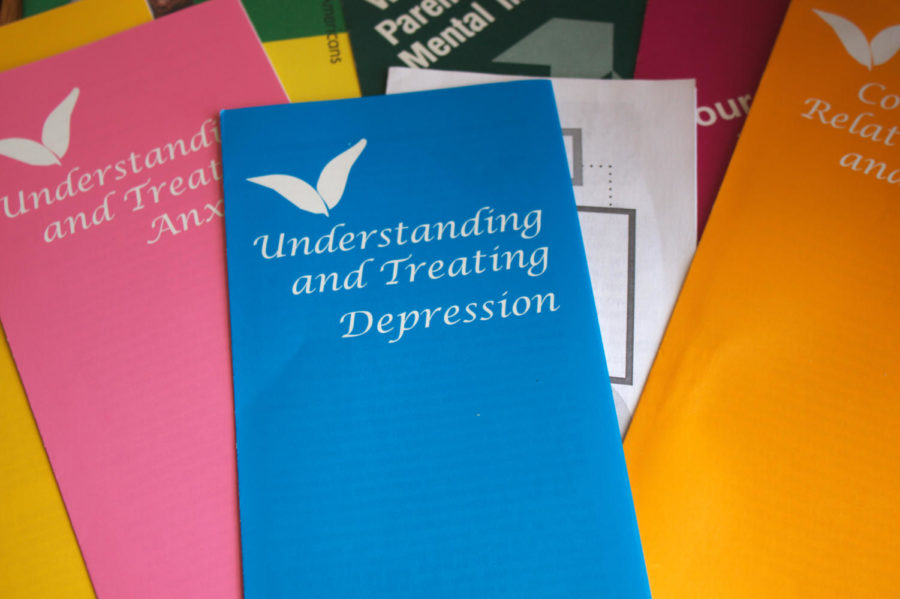Veterans Center offers support
Photo: Lyn Bryant/Iowa State Daily
A variety of brochures are available at the Student Counseling Center on the third floor of the Student Services Building. The center offers free help with a wide range of issues, including post-traumatic stress disorder.
February 7, 2013
Post traumatic stress disorder among veterans will always be a topic of discussion, especially with Iowa State’s numerous veterans on campus.
According to an article by CNN, PTSD among veterans is believed to be a rising problem in the United States as a result of the report released Jan. 31 of army suicide rates reaching a record number of 325 in 2012. However, it is not yet believed to be a rising problem here at Iowa State.
“We have senior leaders in the army that have stood up and said that they’ve gone to talk to with someone to get help, and I think that’s the way it needs to be,” said Lt. Col. Richard Smith, professor of military science,.
There are several services that Iowa State has to offer for someone that might be suffering from PTSD. The ISU Veterans Center always has help available and Iowa State offers counseling services through the Student Counseling Services and Thielen Student Health.
“They can always check in with me as the veterans’ services coordinator at the Veterans Center, and we can get students connected with the best resources available,” said Jathan Chicoine, veterans’ services coordinator.
Getting the word out about PTSD is always a priority for Army ROTC leaders.
“We’ve got to get the word out, and we do it for our cadets here. We still get the word out. These are the warning signs, these are the symptoms, these are what you need to look for in other students,” Smith said.
Leaders are focusing on changing the negative label that PTSD brings.
“I think we try to define PTSD as a bunch of crazy guys running around, [but] it is not. It is someone who saw something very traumatic,” Smith said. “Sometimes they need to talk about it, sometimes they need to get some kind of therapy. There’s just different things that you need, based on the level of what you saw.”
The label that is put on PTSD is a problem. Leaders feel that people need to learn and understand more about PTSD before they put a negative stigma on it.
“There’s a tendency to a put a label on the situation rather than recognize that many of our brothers and sisters returning home and some of the difficulties we go through is a natural reaction to combat setting,” Chicoine said. “I tend to want to see — rather than put a label on it — see it as a process.”
Army ROTC leaders are focusing on getting rid of that stigma by providing as much help as they possibly can.
“PTSD has a stigma from years ago, but what the army has tried to do is take away that stigma,” Smith said. “The army wants you to get help, so it should no longer be something you need to be scared of.”







